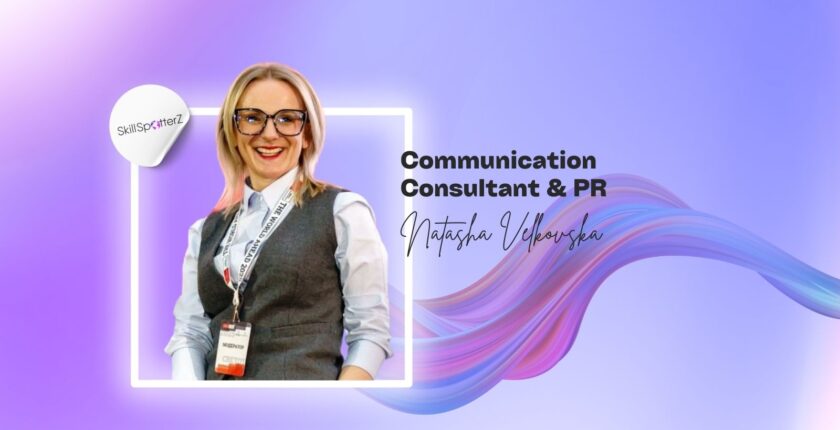Branding Secrets Every Freelancer Can Steal from a PR Strategist
Meet Natasha, a communications powerhouse who has shaped brands for giants like Samsung, Microsoft, and Coca-Cola, and now shares insights every freelancer can use to build a stronger personal brand.
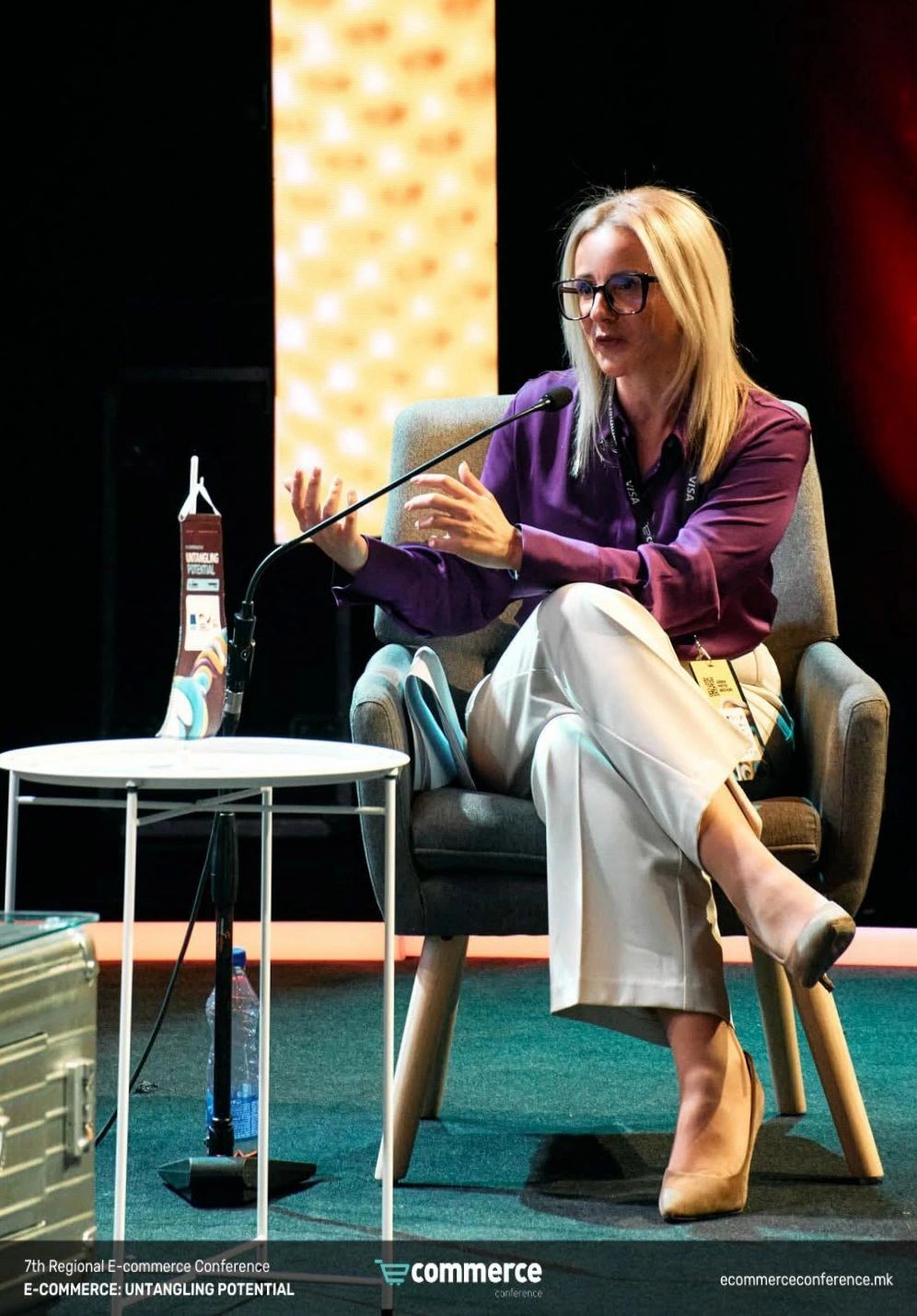
This month’s spotlight is on Natasha, a walking powerhouse who we are unable to describe in just one sentence.
With 18+ years in media, PR, and marketing, Natasha has mastered the art of helping brands cut through the noise and command attention.
From teaching social media strategy to mentoring executives on personal branding, she knows what it takes to stand out in a crowded market.
In this interview, Natasha reveals practical lessons freelancers can borrow, from selling smarter and speaking with confidence, to leveraging AI and storytelling to win clients globally.
At SkillSpotterZ, we spotlight creative minds like Natasha, in order to help Companies and Remote Talent grow together and hear real talk and insights about the industry.
💬 How would you describe ‘’Natasha at the beginning of the career’’ vs. ‘’Natasha today’’?
Back then, I was enthusiastic, curious, eager to learn, but unsure about lots of things.
Today, I’m strategic, confident, and clear about my positioning.
I’ve learned to lean into my strengths, storytelling, cross-cultural communication, and brand strategy, to put time and effort into what makes me happy and to say no to what doesn’t align.
The result? A more purposeful, grounded approach to my work without losing an ounce of enthusiasm and curiosity.
Career Growth & Honest Realities.
💬 What were some of the toughest or most unglamorous moments in your career, and what helped you push through?
There were many times I felt stuck, and the impostor syndrome crept in.
Trust me, working in the basement of TV Sitel where the video editing stations were, wasn’t glamorous, nor getting up at 5 when it is still dark and heading to hair and makeup.
The money was lousy, but it was a learning journey, it was the time and effort invested in me, and it was worth it.
💬 How long did it take you to find your voice and build a brand that truly felt like you? Was there a turning point or defining moment?
I have 18 years of experience in media, marketing, PR, public speaking training and brand strategy.
Have worked in multiple markets and with clients from wonderful to not-so-wonderful.
And I do have something to share:
A personal brand should always be based on experience, completed projects, and acquired practical knowledge, not on the desire to be an online guru.
The purpose of my personal brand is to contribute to the marketing and comms community by sharing what I have, and also to help clients navigate their needs, pose the right questions, and get the best service possible.
Building a Personal Brand That Sells.
💬 If a freelancer wants to build a personal brand and sell their services through it, what are the first things they need to define, and what actions should follow?
Strategy. Value. Story.
Just answer the questions:
What is your core expertise?
What outcomes do you deliver?
What are you exceptionally good at?
What’s your distinctive point of view?
What fresh insight or angle do you bring?
Who benefits most from your work, and why should they care?
💬 What’s your take on soft selling? (content that entertains vs content that sells or combined) When and why does it work well, and where do you see it fall flat?
Soft selling, educational storytelling, or value-led content is powerful when it builds trust and demonstrates expertise without pressure.
It works best when the content is relevant, authentic, and solves a problem. But it falls flat if it never leads to action no clear next step.
Here, I don’t mean flash them with the BUY button, but nudge them to try your advice, tactics, and actions by themselves.
It might work for them, or they might ask for your help.
Either way, the entire community is richer.
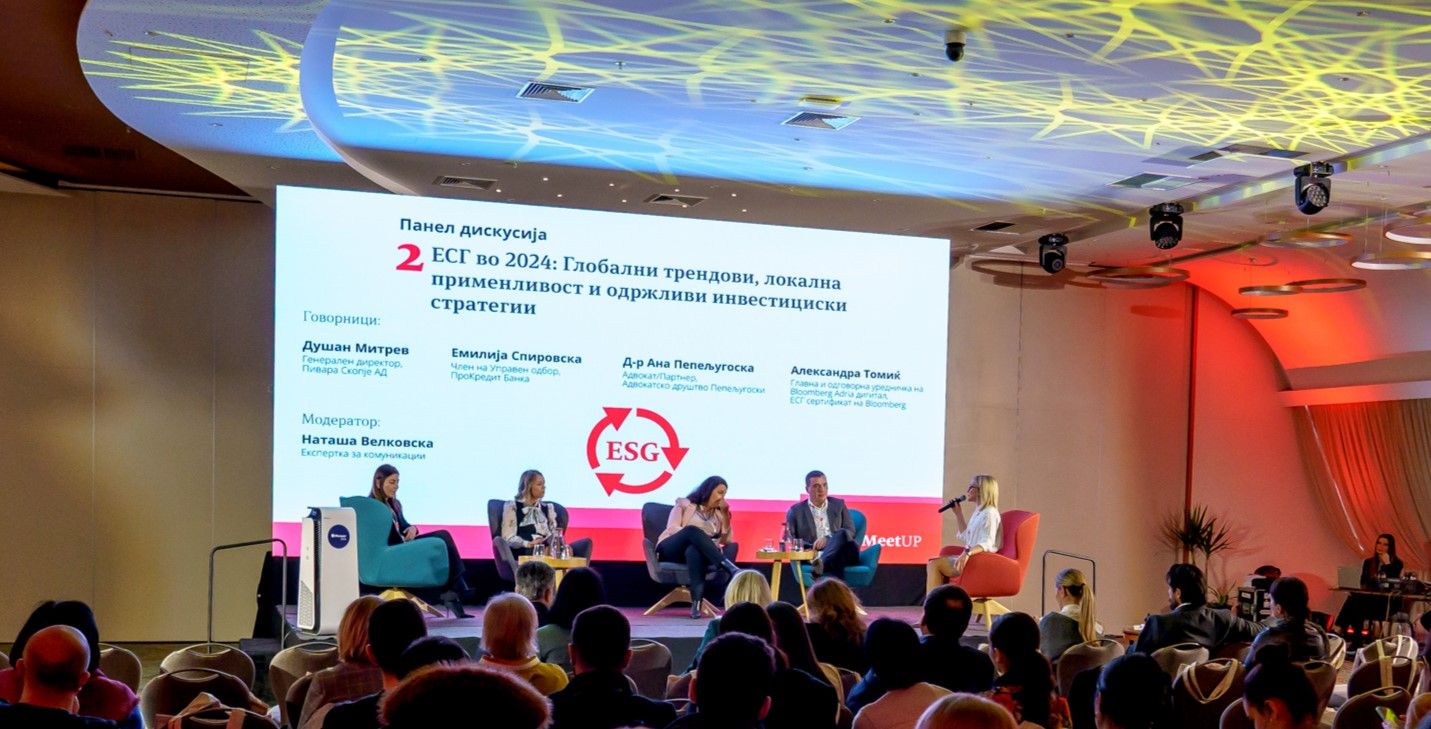
Natasha, as a Panel Moderator at the Economist MeetUP
💬 Many freelancers struggle with the “I do everything” syndrome.
What’s your advice for positioning clearly and communicating your value?
Been there, done that, and for me, it worked great.
I know that the general consensus is that you need to focus on one thing and master it, but my experience is that I need to get good at many different things that interest me, and somehow the Universe will find a way to pay me off.
Furthermore, in the AI age, I do believe we will see great opportunities for generalists with strong curating and decision-making skills.
Working Across Cultures & Building Global Trust.
💬 What’s your advice for building better relationships and communication with clients?
Years ago, at the beginning of the contract with one client, they were questioning and pushing back on some solutions, wanting to play it safe.
I remember saying, „I don’t mean you any harm “ (the phrase sounds better in Macedonian), just to point out that everything I do is so they can reach their goals. We are still going strong and making things happen with the client, now with an abundance of trust.
I love my clients. I want to deliver the best service possible. I’m also aware that there is no need to work with everyone, there is no need to be liked by everyone, and it’s fine to say, “This client is better off working with someone else”.
💬 What are some things your international clients value that we don’t always do locally- or maybe even we misunderstand?
I wouldn’t idealize any market.
We have clients from Western Europe who have been planning a PR project for 18 months, and we haven’t even gotten out of the planning phase yet, and clients from the Middle East who say, “We’re starting an e-commerce site tomorrow, we don’t have a brief, but get the environment ready.
You don’t know what’s better, but it’s fun, and that’s what matters.
What I’ve noticed is that maybe clients like these from the Middle East value more flexibility, adaptability, and preparedness for change.
💬 What are some principles or real-world lessons you’ve learned about writing or positioning for a global audience, especially in advertising or brand storytelling?
To create content that resonates globally, it’s essential to balance universal human themes like emotion, purpose, and challenge with localized execution.
While emotion connects us all, the way it’s expressed can differ widely across regions.
That’s why adapting tone, references, and context is crucial. Short, clear messaging works best, but it needs to be tailored to the communication styles and cultural expectations of each audience.
The sweet spot lies in telling a story that feels both globally relevant and locally meaningful.
I remember a campaign for the UK market.
The client was trying to sell kids’ items on Google. It wasn’t working.
We went chasing the parents on social media and showed them content in which they recognized their everyday life. It worked!
Confidence, Communication & Cold Outreach.
💬 When it comes to Freelancers trying to stand out or pitch their services, what are a few common mistakes people make when pitching their services across borders, and what would an actually great pitch look and sound like to you?
I don’t know. I’m out of the freelancing world for a while, so I’m sure competition is much fiercer.
What I find is always a good thing to put yourself out there.
Speak, post, join in communities, and attend events.
You might be the best in the world if nobody knows about you, nobody can hire you.
When it comes to messaging, I must say be authentic, although I know it sounds cliche.
The truth is, we do not all need to have the same LinkedIn carousel.
Some freelancers fear socializing or turning on their cameras.
💬 What tips or mindset shifts can help them get more confident in client video calls, social appearances, or appearing on social media?
People rarely think and care about us as much as we believe they do.
Don’t be afraid to give them material for thinking and talking.
I was doing a video campaign for the London School of PR with my face on it. People were saying, “ She is making a fool out of herself.”
I started the New Biz Podcast, and people were saying, “ Ah, nonsense, what does she know about these topics?”
And yet at every event, meeting, many knew about and would mention the videos.
The outcome was visibility, projects, and collaborations.
The advice is to grow a thick skin and give people topics to talk about.
Emerging Opportunities & Future-Proofing Skills.
You’re constantly exposed to emerging tech through the New Biz podcast.
💬 What can and should freelancers do in marketing or communications do today to stay relevant and land clients in these fast-evolving industries, even if they’re not tech experts?
You don’t need to code, but you must be curious.
Start by understanding how tech reshapes behavior, how AI influences buyer decisions, how Web3 impacts ownership, or how automation changes communication flows.
Clients don’t hire you to write about technology; they hire you to make complex ideas understandable and compelling to real people.
Read beyond headlines, follow founders on LinkedIn, listen to niche podcasts, and translate that learning into actionable insights in your work.
Show that you can keep pace even if you’re not building the tech; you’re the bridge that makes it relatable, human, and persuasive.
💬 You’ve worked with UNDP, GIZ, and international brands- how can someone from a smaller market still position themselves to be taken seriously by global clients?
We should collectively stop apologizing for our geography.
Don’t underestimate the power of good storytelling and clarity in communication; it’s our best export.
You don’t need a fancy address to show up with value.
I’m saying this from an Agency perspective, well aware that for a freelancer it is not that easy, and yet value and network are my best bet.
💬 What are some valuable lessons in marketing or branding you’ve learned?
Patience. No brand was built overnight. Yes, I know the client wants it now.
Clarity eats creativity for breakfast.
You can have the most creative, award-winning campaign, but if the balance sheet is red, you’ve missed the marketing point.
Strategy is always a good investment.
💬 How did you find your writing voice, and how do you keep on improving it?
I found it by reading a lot, writing a lot, and publishing even when I wasn’t sure it was “ready.”
My voice came through, not in the perfect sentence but in the opinions I was willing to share and the value I chose to give.
I still refine it by analysing what people engage with.
What do they message me about?
I read diverse sources, test formats, and try to always write as I speak.
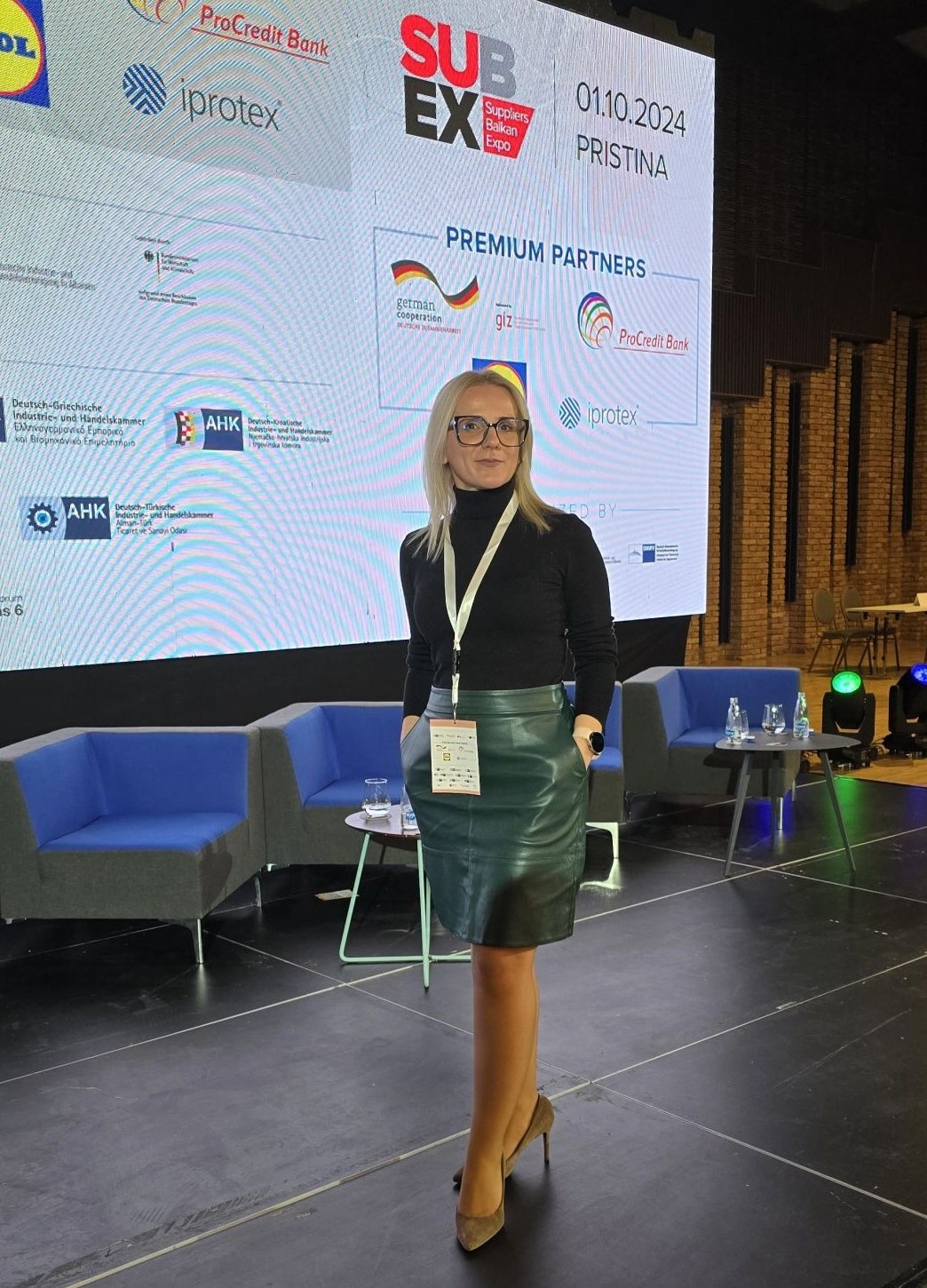
Natasha in her work mode
AI & Tools — Without Losing the Human Touch.
You’re vocal about using AI tools- but also about keeping content human.
💬 What parts of your work do/will you automate, and what parts do you believe should never be automated?
Our Represent System has established a regional AI Hub intended to test AI tools, introduce AI in our everyday tasks and processes, and offer specific AI-driven services to our clients.
We are basing many of the innovations on ChatGPT, but experimenting with other platforms too.
AI will change everything, and I try to see that as a positive thing, hoping that we are wise enough to create legal and ethical boundaries.
Automate what’s mechanical: transcription, summaries, headline suggestions, SEO checks.
Use AI to brainstorm or break creative blocks, but never let it write the final draft.
The heartbeat of good content is tone, empathy, nuance, things AI still can’t do with integrity.
Never automate relationships, ethical thinking, or strategic judgment. Those are your edge, and always will be.
💬 From your view, what shifts are most exciting and can be seen as opportunities, and what should freelancers prepare for?
People want brands (and freelancers) who are not just present but participative, collaborative, transparent, and community-driven.
Audio and short-form video are not just trends; they’re becoming baseline.
Freelancers should prepare to be visible, on camera, on voice, on feed, and ready to adapt.
The exciting part? You don’t need a big agency budget to be part of it.
You need clarity, courage, and consistency.
💬 What skills or mindsets are truly “future-proof”, especially for freelancers in marketing, writing, and content creation?
Stay away from victim mentality.
The pace of change will only accelerate.
Our ability to pivot with confidence is a muscle worth building.
💜 What’s your wisdom drop, Natasha?
Embrace the change.
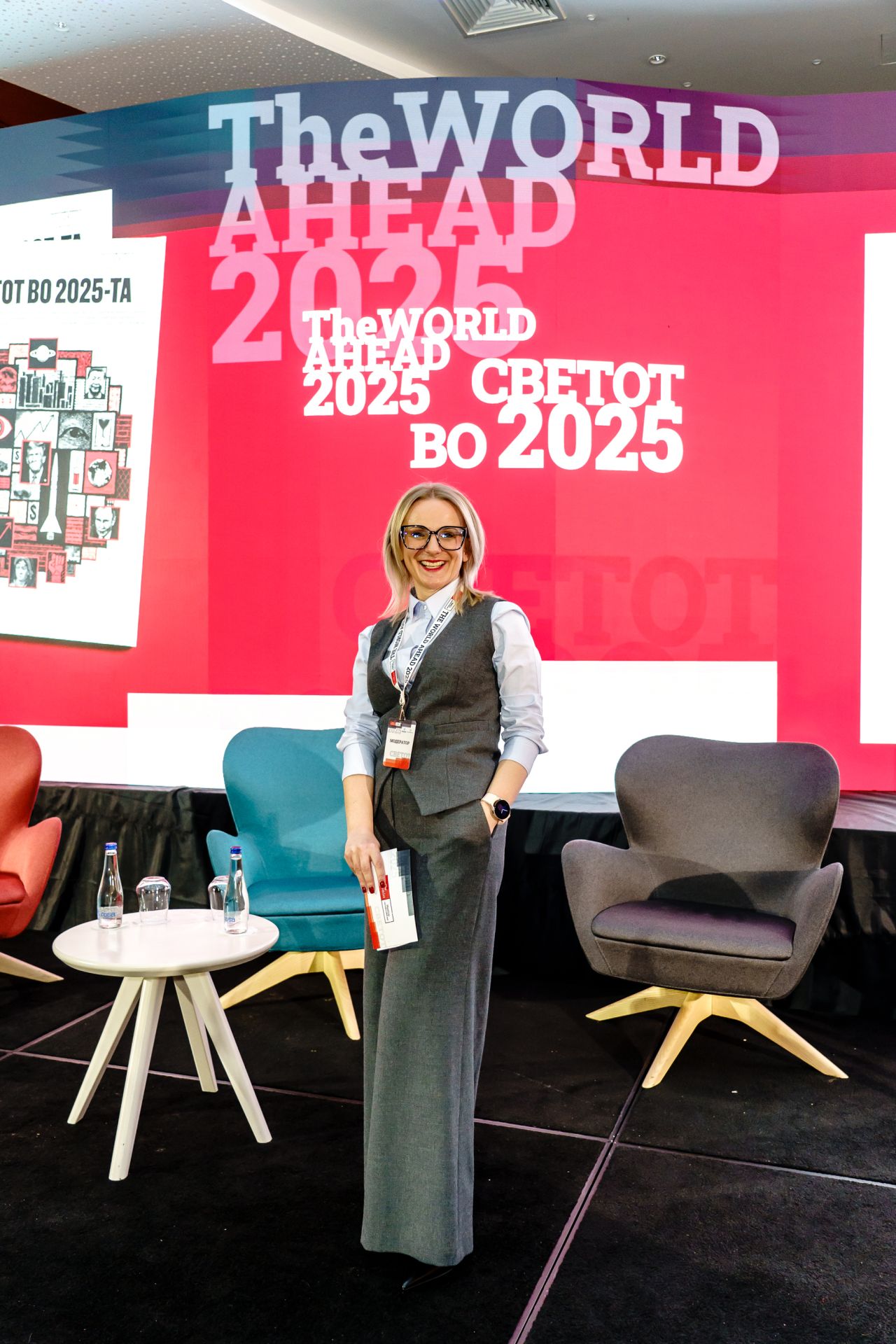
Natasha in her Event moderator mode
Connect with Natasha: LinkedIn Website

